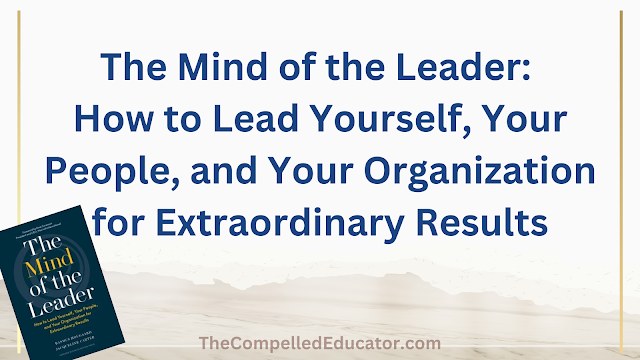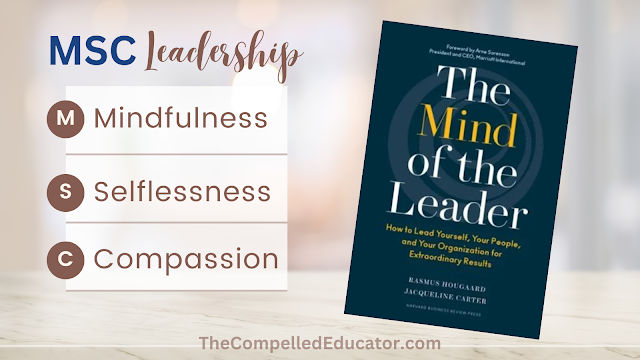Called MSC leadership, it's leadership that begins with leading one’s self, then leading one’s followers, followed by leading one’s organization.
Mindfulness, based on focus and awareness, allows leaders to be effective at giving their time and attention to goals, objectives, and pathways.
Selflessness by the leader is the understanding that the leader is not the sole contributor to an organization’s success, and paired with self-confidence, the leader’s focus is that of the wellbeing of the organization and its employees.
Compassion, not to be confused with empathy, creates a lens for the leader to view others and the organization with care, even in challenging and difficult situations.
The three characteristics are interrelated and connected. Mindfulness (M) makes a person selfless, and selflessness (S) makes one more compassionate (C). To be an MSC leader, one must courageously commit to self-leadership and be willing to cultivate the three characteristics relentlessly.
Mindfulness is the pathway to self-awareness. Authors Hougaard and Carter go into detail about mindfulness and awareness, stating that mindfulness allows people to be fully in the moment and aware of thoughts, decisions, and actions while giving a pause where new thoughts, choices, and actions can be made.
Today’s world is full of distractions that lead people away from being mindful and self-aware. From email to social media to phone notifications, mindfulness can take a “back seat” to the incoming information and distractions. With the overwhelming amount of information that we face each day, it can lead to operating in autopilot mode. When on autopilot, leaders can say or do things without self-awareness of how the actions will be perceived from followers.
To become an exceptional leader, one needs to have consistent, focused performance. In The Mind of the Leader, the authors share four strategies to accomplish focused performance.
- In line with self-leadership, it is important for leaders to know what impacts their own focus, including time of day, caffeine, emotions, and physical health.
- The second strategy is to stop multitasking. Easier said than done, it is important to be aware when multitasking and limit one’s actions to one task at a time. While it may seem as though it is less productive to perform one task at a time, there are negative results that arise when multitasking.
- The third strategy for focused performance is to take time to do nothing. Our brains are wired to be doing something all the time, yet many of the behaviors in which we engage are non-productive tasks and distractions to our greater goal of focus performance.
- The fourth strategy is to create focus time. It is important to make it a priority to spend time away from devices and do focused work. As a leader, set aside time with your followers to work collaboratively on distraction-free activities.
"Selfless leadership is about having the wisdom to develop and grow your people so they can shine and thrive with your support."
- Hougaard & Carter, The Mind of the Leader
The Mind of the Leader by Hougaard and Carter is a must-read for anyone aspiring to become an effective leader. The authors provide insightful perspectives on leadership, including the importance of mindfulness, compassion, and self-awareness. They also offer practical tools and strategies to develop these qualities in oneself. Overall, this book is an excellent guide to cultivating the mindset and skills necessary for successful leadership.





